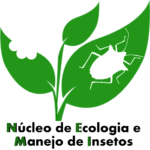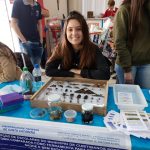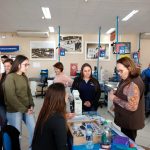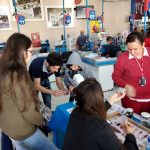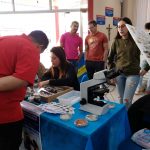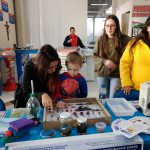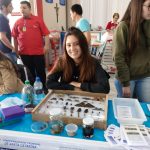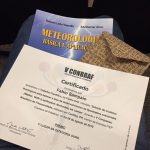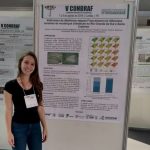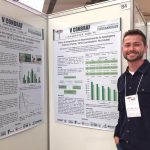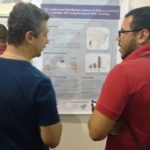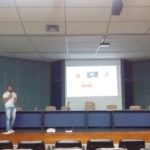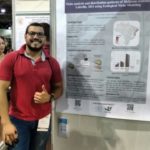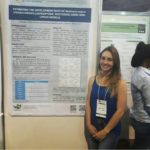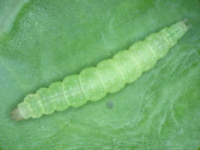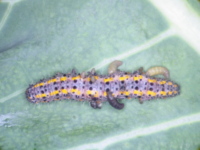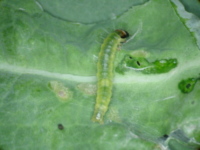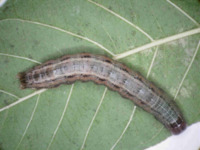-
Climate change and risks for “pinhão”
 Watching a movie under the duvet covers while eating pinhão (araucária seeds) and drinking a good wine. This combination is considered perfect for a typical winter day for many who live in southern Brazil. Perhaps it will be even better with a “paçoca de pinhão” or an “entrevero” (dish with beef, pork, araucaria seed and vegetables). This delicacy widely consumed in southern Brazil comes from the Araucaria (Araucaria angustifolia), also known as Parana pine or Brazilian pine. Apart from humans, native rodents, marsupials, birds and even primates also feed on araucaria seeds, a rich source of carbohydrates available in the araucaria forests.
Watching a movie under the duvet covers while eating pinhão (araucária seeds) and drinking a good wine. This combination is considered perfect for a typical winter day for many who live in southern Brazil. Perhaps it will be even better with a “paçoca de pinhão” or an “entrevero” (dish with beef, pork, araucaria seed and vegetables). This delicacy widely consumed in southern Brazil comes from the Araucaria (Araucaria angustifolia), also known as Parana pine or Brazilian pine. Apart from humans, native rodents, marsupials, birds and even primates also feed on araucaria seeds, a rich source of carbohydrates available in the araucaria forests.In the past, illegal timber extraction and habitat loss due to deforestation drastically affected this species. Nowadays, araucaria is considered a critically endangered species by the IUCN, which is the leading organisation that assesses the conservation status of species worldwide.
Due to the cultural and ecological importance of araucaria, and its risk of extinction, our research group decided to assess whether climate change could be an additional threat to this cold adapted tree. Our study used information about the known distribution of araucaria and characteristics of soil and climate to understand the relationship between its distribution and the environment.
When our model was projected onto future climate change scenarios we found that the suitable areas for the species can be reduced by up to 77%! In practical terms, this means a much smaller area with araucaria, less food for native fauna and less araucaria seeds in our home.
But it is not enough to point out the problem, we also have to think of a solution. For this reason, our study assessed which environmental protection areas are effective for the conservation of araucaria in the future, and which areas may be used to create new conservation units for long-term protection. Moreover, we proposed the sustainable use of araucaria as an additional conservation measure, especially in regions that need to comply with the Brazilian Forest Code. We know that for our dear araucaria to be protected, a great deal of political effort will be necessary, and in this case, popular pressure is important!
The full article can be acessed here.
Paper: Present and future of the critically endangered Araucaria angutifolia due to climate change and habitat loss. Marchioro, CA; Santos, KL; Siminski A.
-
Insects and the community
On August 17, NEMI participated in the “UFSC na rua” activity, held in Curitibanos, SC. In this event, the research and teaching activities developed at UFSC are disclosed in public spaces. The event was held at Myatã Supermarket, and was attended by students and teachers from different UFSC’ undergraduate courses and laboratories. NEMI was represented by the student Hevellyn Talissa dos Santos, who exposed insects and other animals to discuss the important role these organisms play in the people’s lives. In addition, it is expected to arouse the interest of Curitibanos municipal students for the study of animals. The next event will be held on August 24 at Via Atacadista Supermarket.
-
Another work from NEMI receives award!
A work developed by NEMI members was awarded at the 5th Brazilian Plant Protection Congress held from August 7th to 9th in Curitiba, PR. Four conference papers were presented at the event by the former NEMI graduating student in agronomy Jullia Jacques, and the master’s student Fábio Sampaio. The award-winning work by Fábio Sampaio and Cesar A. Marchioro was an oral presentation entitled “Phenological models for estimating the development of Spodoptera cosmioides (Walker, 1858) (Lepidoptera: Noctuidae) under field conditions”. In addition to this study, three other conference papers were presented at the event:
- Voltinism of Mythimna sequax Franclemont in different climate change scenarios in Rio Grande do Sul and Santa Catarina States (Authors: Jullia Jacques, Hevellyn T. Santos, Fábio Sampaio, Cesar A. Marcchioro);
- Effects of temperature on the development of Spodoptera eridania (Cramer, 1872) (Lepidoptera: Noctuidae) (Authors: Fábio Sampaio, Flavia S. Krechemer, Cesar A. Marchioro);
- Survival of the immature stages of Spodoptera eridania (Cramer, 1872) (Lepidoptera: Noctuidae) in different temperatures (Authors: Fábio Sampaio, Flavia S. Krechemer, Cesar A. Marchioro);
Soon these conference papers will be available on our website!
- Certificado de premiação
- Jullia Jacques no VCONBRAF
- Fábio Sampaio no VCONBRAF
-
New paper coming out!
The paper entitled “Climate change and voltinism of Mythimna sequax: the location and choice of phenological models matter” is now available on the Agricultural and Forest Entomology journal website. Understanding the effect of climate change on insect pests voltinism (annual number of generations) is of great relevance considering that it is directly related to pest abundance in agroecosystems and, as a consequence, to economic losses for producers.
The study conducted by undergraduate and master students showed that global warming will impact the number of generations of an important pest of plants of the Poaceae family. Interestingly, the influence of global warming on pest voltinism varied according to the study area, and the highest increase was predicted in currently colder regions , such as the highlands of the Santa Catarina and Rio Grande do Sul states. In warmer regions, such as western Santa Catarina and Rio Grande do Sul, we observed a reduction in pest voltinism varying according to the intensity of the global warming. These findings can be used for pest management planning in a climate change scenario.
-
NEMI student receives award
 The graduate in Agronomy and PIBIC scholarship holder, Jullia Jacques, was awarded as best work in the area of “Life Sciences” at the 27th Seminar of Scientific Initiation of the Federal University of Santa Catarina. This is the second prize obtained from the work entitled “Effect of temperature on the development and survival of Mythimna sequax (Franclemont) (Lepidoptera: Noctuidae) and use of linear and nonlinear models to estimate pest development rate”. As a prize, Jullia will participate in the 2018 Scientific Initiation Journey (JNIC), which will take place during the 70th Annual Meeting of the Brazilian Society for the Advancement of Science (SBPC) in Maceió, AL.
The graduate in Agronomy and PIBIC scholarship holder, Jullia Jacques, was awarded as best work in the area of “Life Sciences” at the 27th Seminar of Scientific Initiation of the Federal University of Santa Catarina. This is the second prize obtained from the work entitled “Effect of temperature on the development and survival of Mythimna sequax (Franclemont) (Lepidoptera: Noctuidae) and use of linear and nonlinear models to estimate pest development rate”. As a prize, Jullia will participate in the 2018 Scientific Initiation Journey (JNIC), which will take place during the 70th Annual Meeting of the Brazilian Society for the Advancement of Science (SBPC) in Maceió, AL.Congratulations to Jullia on the prize won!
-
Brazilian Congress of Ecology
Between october 8 and 12 the NEMI students Valdeir Pereira Lima and Jullia Jacques presented their work in the XIII Congresso Brasileiro de Ecologia e III Simpósio Internacional de Ecologia e Evolução. The studies entitled “Niche analysis and distribution patterns of Melipona scutellaris Latrille, 1981 using ecological niche modelling”, “Predicting the impacts of climate change on Melipona subnitida Ducke, 1910” and “Estimating the development rate of Mythimna sequax (Franclemont) (Lepidoptera: Noctuidae) using non-linear models” can be obtained in the section publications. The works presented in the event resulted from studies carried out by NEMI involving the development of phenological models for insect pests and the effects of climate change on the distribution of stingless bees native from Brazil.
Congratulations to the NEMI students for their excellent work!
-
NEMI will be in the Brazilian Congress of Ecology
 The grad student Valdeir Pereira Lima and the undergraduate student in Agronomy, Julia Jacques, will represent NEMI at the XIII Brazilian Congress of Ecology and III International Symposium of Ecology and Evolution, which will be held between 8 and 12 October 2017 in Viçosa, MG. The conference papers entitled “Niche analysis and distribution patterns of Melipona scutellaris Latrille, 1981 using ecological niche modeling” and “Prediction of the impacts of climate change on Melipona subnitida Ducke, 1910″ will be presented orally. The conference paper entitled “Estimating the development rate of Mythimna sequax (Franclemont) (Lepidoptera: Noctuidae) using non-linear models” and will be presented in poster format. We will soon provide the abstracts, as well as the slideshows and the poster.
The grad student Valdeir Pereira Lima and the undergraduate student in Agronomy, Julia Jacques, will represent NEMI at the XIII Brazilian Congress of Ecology and III International Symposium of Ecology and Evolution, which will be held between 8 and 12 October 2017 in Viçosa, MG. The conference papers entitled “Niche analysis and distribution patterns of Melipona scutellaris Latrille, 1981 using ecological niche modeling” and “Prediction of the impacts of climate change on Melipona subnitida Ducke, 1910″ will be presented orally. The conference paper entitled “Estimating the development rate of Mythimna sequax (Franclemont) (Lepidoptera: Noctuidae) using non-linear models” and will be presented in poster format. We will soon provide the abstracts, as well as the slideshows and the poster.Congratulations to the NEMI members for their excelent work!
-
Paper among the most read of the year
 A paper recently published by members of NEMI in the Brazilian Journal of Entomology is among the most read papers in the journal in 2016. The paper entitled “Biotic factors are more important than abiotic factors in regulating the abundance of Plutella xylostella L. in Southern Brazil” was published in October 2016 and discusses the influence of biotic and abiotic factors on the abundance of an important pest of brassica crops. The study demonstrated that larval parasitoids play an important role in the population regulation of the pest, and therefore control measures aiming to maximize the survival of the parasitoids may be used to reduce the abundance of the pest in the field.
A paper recently published by members of NEMI in the Brazilian Journal of Entomology is among the most read papers in the journal in 2016. The paper entitled “Biotic factors are more important than abiotic factors in regulating the abundance of Plutella xylostella L. in Southern Brazil” was published in October 2016 and discusses the influence of biotic and abiotic factors on the abundance of an important pest of brassica crops. The study demonstrated that larval parasitoids play an important role in the population regulation of the pest, and therefore control measures aiming to maximize the survival of the parasitoids may be used to reduce the abundance of the pest in the field. -
New paper published
 The paper entitled “Estimating the development rate of the tomato leaf miner Tuta absoluta (Lepidoptera: Gelechiidae) using linear and non-linear models” was published in the Journal Pest Management Science (PMC). The printed version will be published later in 2017, but the paper can already be read in its online version on the PMC website. The study developed by members of NEMI tested 13 linear and non-linear models to describe the development rate of the tomato leaf miner, an insect pest that recently invaded the African, Asian and European continents. These models can be employed to predict the occurrence of the pest in the field, and help in the decision make on the best moment to implement control measures.
The paper entitled “Estimating the development rate of the tomato leaf miner Tuta absoluta (Lepidoptera: Gelechiidae) using linear and non-linear models” was published in the Journal Pest Management Science (PMC). The printed version will be published later in 2017, but the paper can already be read in its online version on the PMC website. The study developed by members of NEMI tested 13 linear and non-linear models to describe the development rate of the tomato leaf miner, an insect pest that recently invaded the African, Asian and European continents. These models can be employed to predict the occurrence of the pest in the field, and help in the decision make on the best moment to implement control measures. -
New year and good news
Starting January of this year, the entire site, including the news, will be published in Portuguese and English, aiming to reach a broader audience. To read the site in the English version, simply change the language in the upper right corner.
Happy New Year to everybody!

